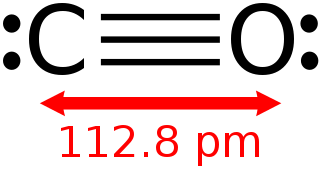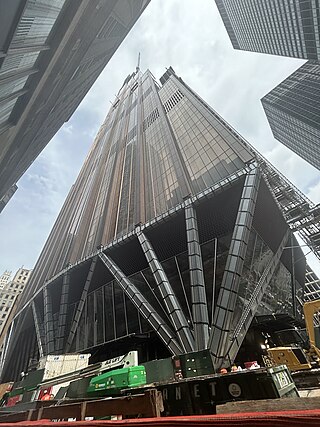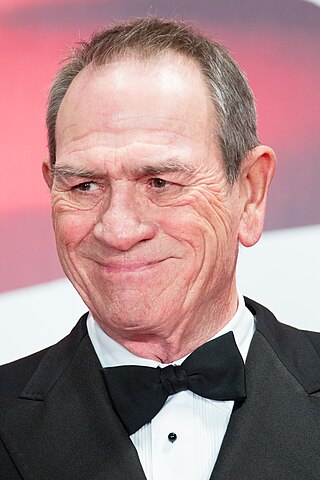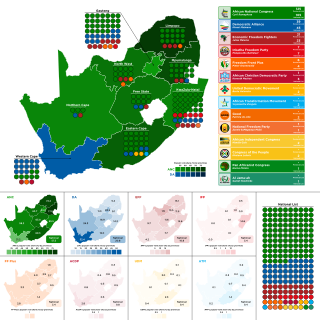
Colombia, officially the Republic of Colombia, is a country primarily located in South America with insular regions in North America. The Colombian mainland is bordered by the Caribbean Sea to the north, Venezuela to the east and northeast, Brazil to the southeast, Ecuador and Peru to the south and southwest, the Pacific Ocean to the west, and Panama to the northwest. Colombia is divided into 32 departments. The Capital District of Bogotá is also the country's largest city hosting the main financial and cultural hub. Other major urbes include Medellín, Cali, Barranquilla, Cartagena, Santa Marta, Cúcuta, Ibagué, Villavicencio and Bucaramanga. It covers an area of 1,141,748 square kilometers and has a population of around 52 million. Its rich cultural heritage—including language, religion, cuisine, and art—reflects its history as a colony, fusing cultural elements brought by immigration from Europe and the Middle East, with those brought by the African diaspora, as well as with those of the various Indigenous civilizations that predate colonization. Spanish is the official language, although Creole, English and 64 other languages are recognized regionally.

Carbon monoxide is a poisonous, flammable gas that is colorless, odorless, tasteless, and slightly less dense than air. Carbon monoxide consists of one carbon atom and one oxygen atom connected by a triple bond. It is the simplest carbon oxide. In coordination complexes, the carbon monoxide ligand is called carbonyl. It is a key ingredient in many processes in industrial chemistry.

The citric acid cycle—also known as the Krebs cycle, Szent–Györgyi–Krebs cycle or the TCA cycle (tricarboxylic acid cycle)—is a series of biochemical reactions to release the energy stored in nutrients through the oxidation of acetyl-CoA derived from carbohydrates, fats, and proteins. The chemical energy released is available under the form of ATP. The Krebs cycle is used by organisms that respire (as opposed to organisms that ferment) to generate energy, either by anaerobic respiration or aerobic respiration. In addition, the cycle provides precursors of certain amino acids, as well as the reducing agent NADH, that are used in numerous other reactions. Its central importance to many biochemical pathways suggests that it was one of the earliest components of metabolism. Even though it is branded as a "cycle", it is not necessary for metabolites to follow only one specific route; at least three alternative segments of the citric acid cycle have been recognized.

Panasonic Holdings Corporation is a Japanese multinational electronics company, headquartered in Kadoma, Osaka, Japan. It was founded in 1918 as Matsushita Electric Housewares Manufacturing Works in Fukushima, Osaka by Kōnosuke Matsushita. In 1935, it was incorporated and renamed Matsushita Electric Industrial Co., Ltd. In 2008, it changed its name to Panasonic Corporation. In 2022, it became a holding company and was renamed.

JPMorgan Chase & Co. is an American multinational finance company headquartered in New York City and incorporated in Delaware. It is the largest bank in the United States and the world's largest bank by market capitalization as of 2023. As the largest of Big Four banks, the firm is considered systemically important by the Financial Stability Board. Its size and scale have often led to enhanced regulatory oversight as well as the maintenance of an internal "Fortress Balance Sheet". The firm is headquartered at 383 Madison Avenue in Midtown Manhattan and is set to move into the under-construction JPMorgan Chase Building at 270 Park Avenue in 2025.

Tommy Lee Jones is an American actor. He has received various accolades including an Academy Award, a Golden Globe Award, a Primetime Emmy Award and two Screen Actors Guild Awards.

Owen Cunningham Wilson is an American actor. He has frequently worked with filmmaker Wes Anderson, with whom he has shared writing and acting credits on the films Bottle Rocket (1996), Rushmore (1998), and The Royal Tenenbaums (2001)—the latter received a nomination for the Academy Award and BAFTA Award for Best Screenplay. He has also appeared in Anderson's The Life Aquatic with Steve Zissou (2004), The Darjeeling Limited (2007), Fantastic Mr. Fox (2009), The Grand Budapest Hotel (2014), and The French Dispatch (2021). Wilson also starred in the Woody Allen romantic comedy Midnight in Paris (2011) as unsatisfied screenwriter Gil Pender, a role which received a Golden Globe Award nomination. In 2014, he appeared in Paul Thomas Anderson's Inherent Vice and Peter Bogdanovich's She's Funny That Way.

Wrexham Association Football Club is a professional association football club based in Wrexham, Wales. Formed in 1864, it is the oldest club in Wales and the third-oldest professional association football team in the world. They compete in EFL League One, the third level of the English football league system.

Karl Martin Sandberg, known professionally as Max Martin, is a Swedish record producer and songwriter. He rose to prominence in the late 1990s with songwriting credits on a string of hit singles, such as Britney Spears's "...Baby One More Time" (1998), the Backstreet Boys' "I Want It That Way" (1999), Celine Dion's "That's the Way It Is" (1999) and NSYNC's "It's Gonna Be Me" (2000).

Stephen James Merchant is an English comedian, actor, director, and writer. He was the co-writer and co-director of the British TV comedy series The Office (2001–2003), and co-writer, co-director, and co-star of both Extras (2005–2007) and Life's Too Short (2011–2013) alongside Ricky Gervais. With Gervais and Karl Pilkington, he hosted The Ricky Gervais Show in its radio, podcast, audiobook, and television formats; the radio version won a bronze Sony Award. He also provided the voice of the robotic "Intelligence Dampening Sphere" Wheatley in the 2011 video game Portal 2. Merchant co-developed the Sky One travel documentary series An Idiot Abroad (2010–2012) and co-created Lip Sync Battle (2015–2019).

PepsiCo, Inc. is an American multinational food, snack, and beverage corporation headquartered in Harrison, New York, in the hamlet of Purchase. PepsiCo's business encompasses all aspects of the food and beverage market. It oversees the manufacturing, distribution, and marketing of its products. PepsiCo was formed in 1965 with the merger of the Pepsi-Cola Company and Frito-Lay, Inc., PepsiCo has since expanded from its namesake product Pepsi Cola to an immensely diversified range of food and beverage brands. The largest and most recent acquisition was Pioneer Foods in 2020 for US$1.7 billion and prior to it was buying the Quaker Oats Company in 2001, which added the Gatorade brand to the Pepsi portfolio and Tropicana Products in 1998.

Great Britain is an island in the North Atlantic Ocean off the north-west coast of continental Europe, consisting of the countries England, Scotland and Wales. With an area of 209,331 km2 (80,823 sq mi), it is the largest of the British Isles, the largest European island and the ninth-largest island in the world. It is dominated by a maritime climate with narrow temperature differences between seasons. The island of Ireland, with an area 40 per cent that of Great Britain, is to the west—these islands, along with over 1,000 smaller surrounding islands and named substantial rocks, form the British Isles archipelago.

RasenBallsport Leipzig e.V., commonly known as RB Leipzig, is a German professional football club based in Leipzig, Saxony. The club was founded in 2009 by the initiative of the company Red Bull GmbH, which purchased the playing rights of fifth-tier side SSV Markranstädt with the intent of advancing the new club to the top-flight Bundesliga within eight years. The men's professional football club is run by the spin-off organization RasenBallsport Leipzig GmbH. RB Leipzig plays its home matches at the Red Bull Arena. The club nickname is Die Roten Bullen.

The Organisation for Economic Co-operation and Development is an intergovernmental organisation with 38 member countries, founded in 1961 to stimulate economic progress and world trade. It is a forum whose member countries describe themselves as committed to democracy and the market economy, providing a platform to compare policy experiences, seek answers to common problems, identify good practices, and coordinate domestic and international policies of its members.

General elections were held in South Africa on 8 May 2019 to elect a new President, National Assembly and provincial legislatures in each province. These were the sixth elections held since the end of apartheid in 1994 and determined who would become the next President of South Africa.

The global COVID-19 pandemic, caused by severe acute respiratory syndrome coronavirus 2 (SARS-CoV-2), began with an outbreak in Wuhan, China, in December 2019. It spread to other areas of Asia, and then worldwide in early 2020. The World Health Organization (WHO) declared the outbreak a public health emergency of international concern (PHEIC) on 30 January 2020, and assessed the outbreak had become a pandemic on 11 March 2020.

Severe acute respiratory syndrome coronavirus 2 (SARS‑CoV‑2) is a strain of coronavirus that causes COVID-19, the respiratory illness responsible for the COVID-19 pandemic. The virus previously had the provisional name 2019 novel coronavirus (2019-nCoV), and has also been called human coronavirus 2019. First identified in the city of Wuhan, Hubei, China, the World Health Organization designated the outbreak a public health emergency of international concern from January 30, 2020, to May 5, 2023. SARS‑CoV‑2 is a positive-sense single-stranded RNA virus that is contagious in humans.

Coronavirus disease 2019 (COVID-19) is a contagious disease caused by the coronavirus SARS-CoV-2. The first known case was identified in Wuhan, China, in December 2019. Most scientists believe the SARS-CoV-2 virus entered into human populations through natural zoonosis, similar to the SARS-CoV-1 and MERS-CoV outbreaks, and consistent with other pandemics in human history. Social and environmental factors including climate change, natural ecosystem destruction and wildlife trade increased the likelihood of such zoonotic spillover. The disease quickly spread worldwide, resulting in the COVID-19 pandemic.

The COVID-19 lab leak theory, or lab leak hypothesis, is the idea that SARS-CoV-2, the virus that caused the COVID-19 pandemic, came from a laboratory. This claim is highly controversial; most scientists believe the virus spilled into human populations through natural zoonosis, similar to the SARS-CoV-1 and MERS-CoV outbreaks, and consistent with other pandemics in human history. Available evidence suggests that the SARS-CoV-2 virus was originally harbored by bats, and spread to humans from infected wild animals, functioning as an intermediate host, at the Huanan Seafood Market in Wuhan, Hubei, China, in December 2019. Several candidate animal species have been identified as potential intermediate hosts. There is no evidence SARS-CoV-2 existed in any laboratory prior to the pandemic, or that any suspicious biosecurity incidents happened in any laboratory.



















